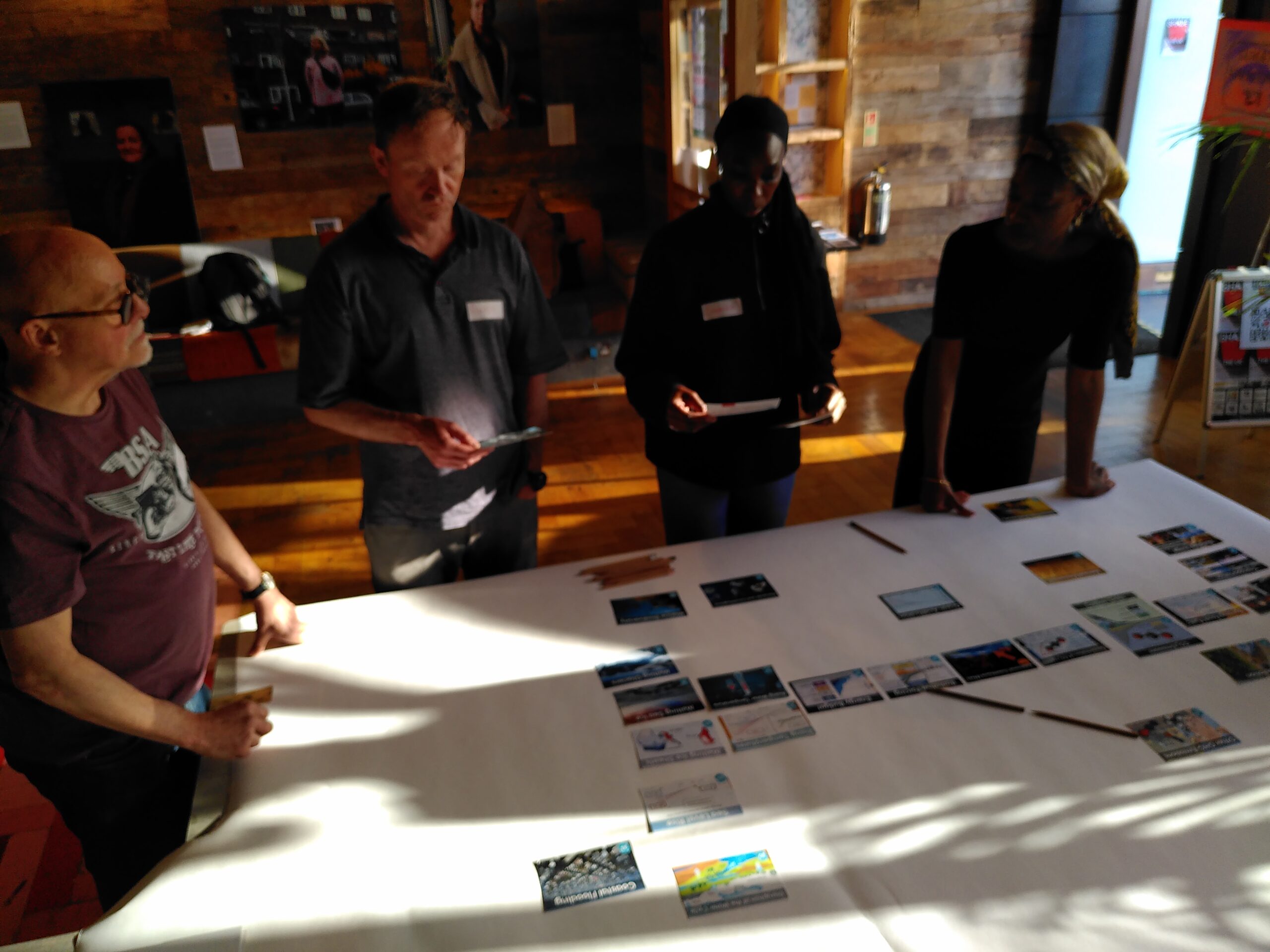It was a sunny Tuesday evening and great for doing a climate fresk, with the sun coming in through the big front windows of the climate centre. I was joined by Chris Heaton to co-facilitate and Anna who runs the Islington Climate Centre where we were hosting the fresk.
Here is the resulting fresk, not quite in all its glory due to photographic challenges with large, detailed subjects! Love, rage, outrage and optimism summed up the state of the world for us.
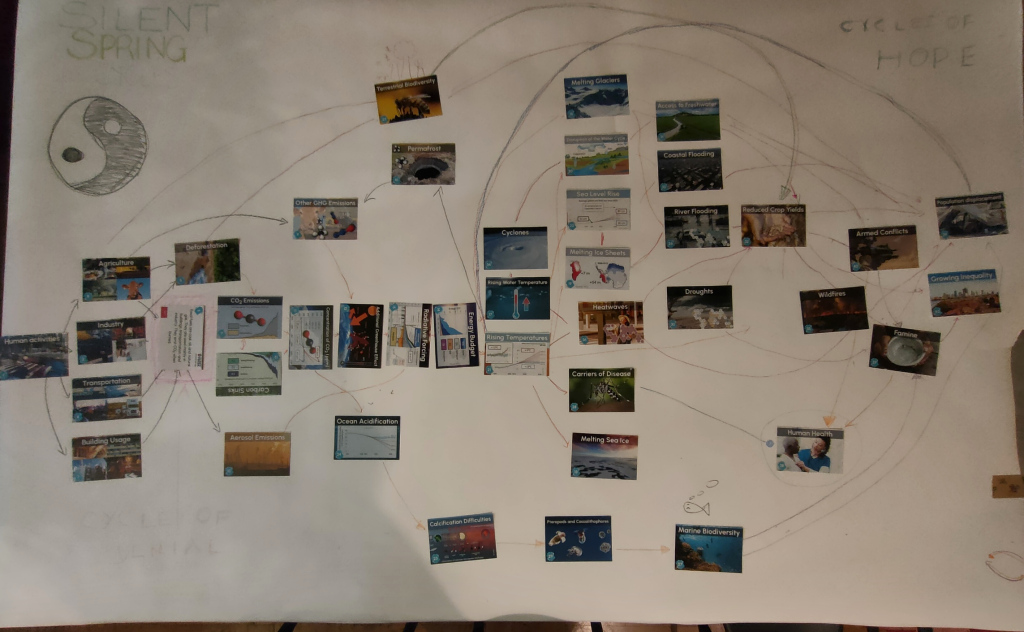
For a good look at all the cards and all possible links, you can do no better than the Climate Fresk website’s fresk memo. For more data and infographics, it’s all captured in this useful PDF.
Apologies to all who came (and note to self), because I should have said beforehand that we needed to start promptly at 6:00pm, meaning that we started late and should have had more time for the action discussion. However, our participants didn’t return to the carbon bubble of the real world empty-handed. People’s individual actions are outlined here, and to increase their impact, we encouraged everyone to get a community or group around them doing the same – whether it’s friends, family, neighbours, work colleagues or other more aware people. Socially, the arithmetic then becomes 2 + 2 = 5.
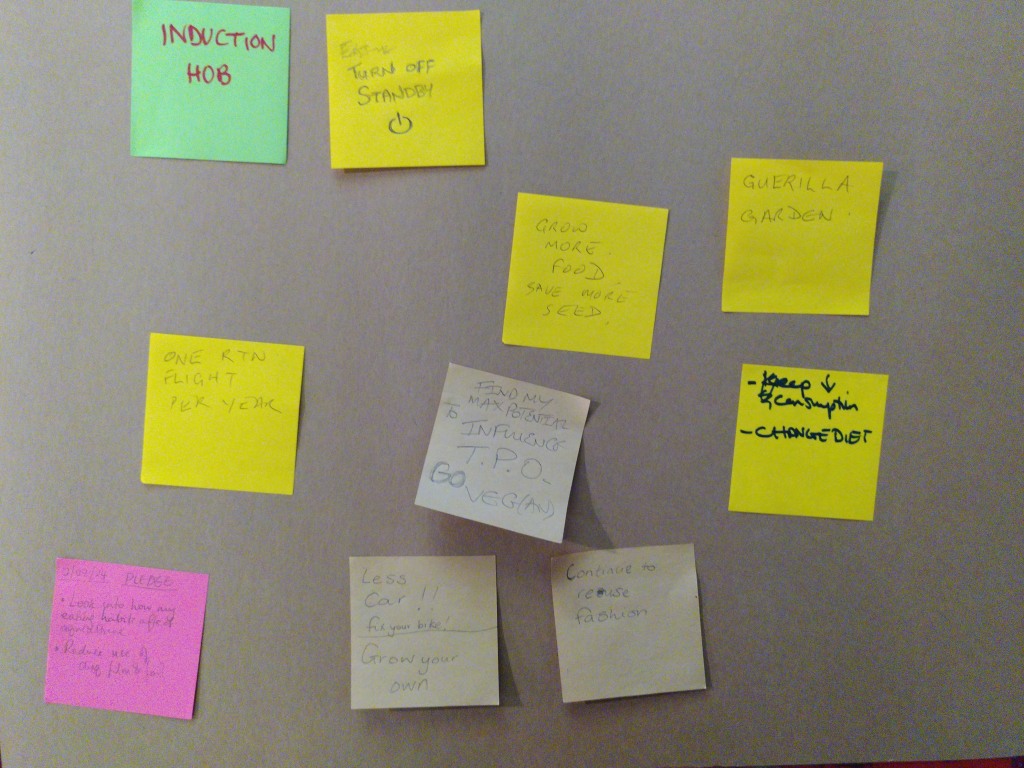
To take personal action to the next level, you can sign up with EcoCounts to do carbon footprinting and see how that feeds in to our plan to change the world. Just email me, use any of the channels listed on Link Tree, or check out our home page.
To offer a quick way forward on the group/community front, we proposed setting up a 5-strong chat group for climate, nature & sustainability, to keep people’s motivation and energy levels up when faced with everyday life. More details in your inbox soon.
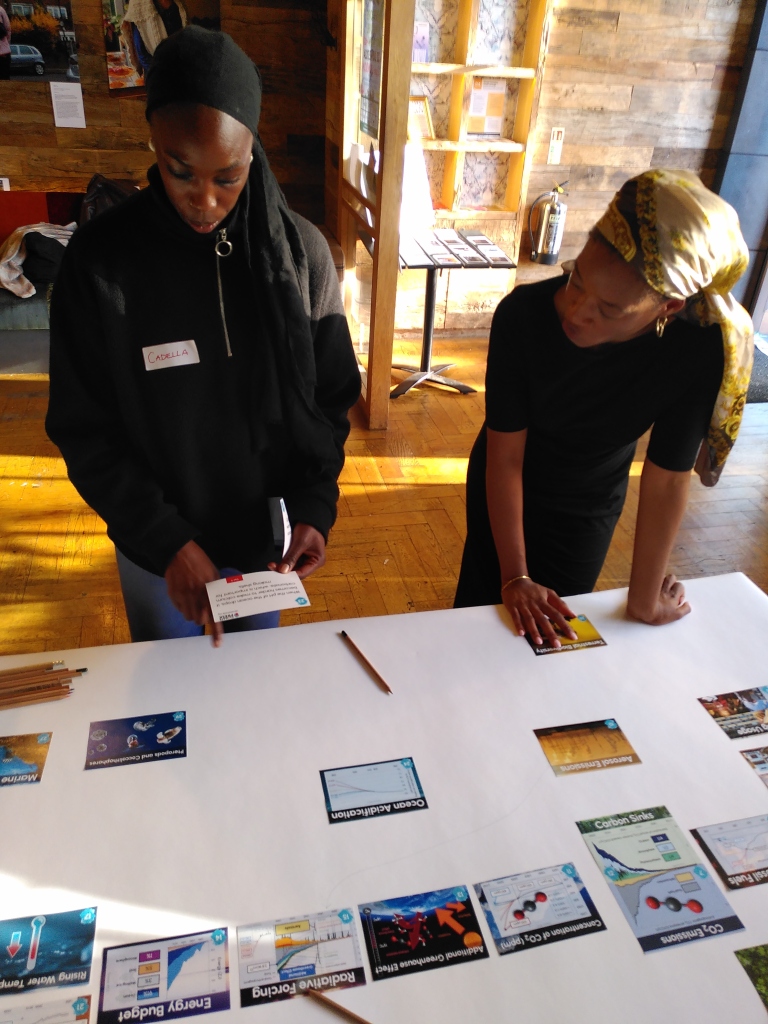
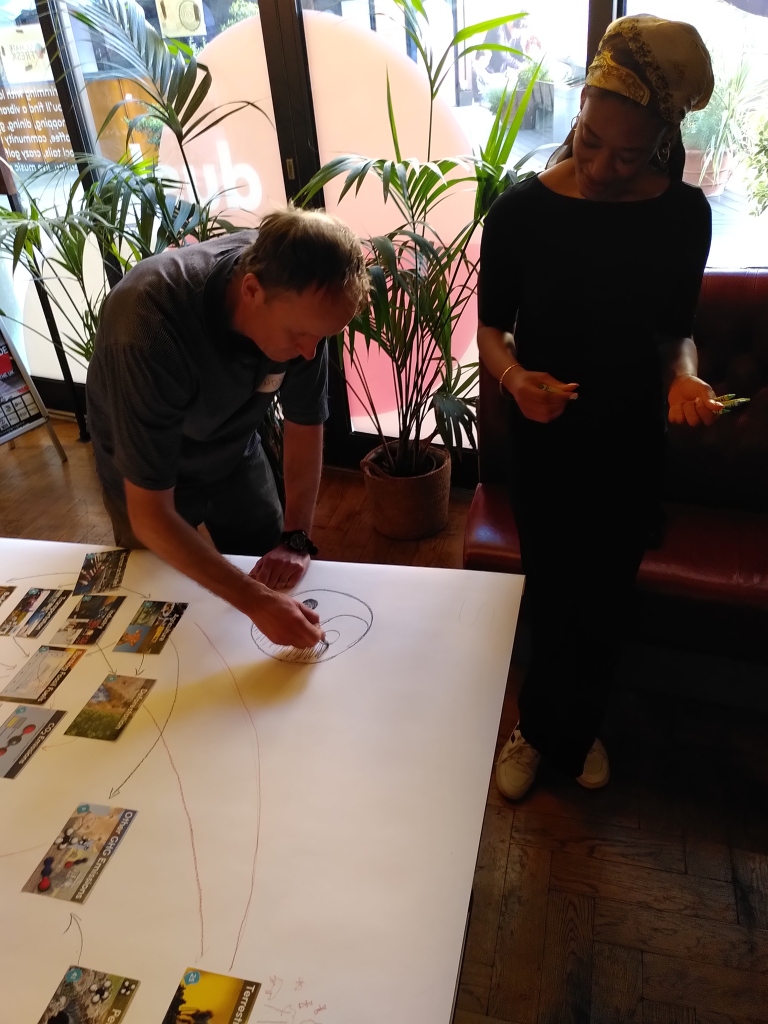
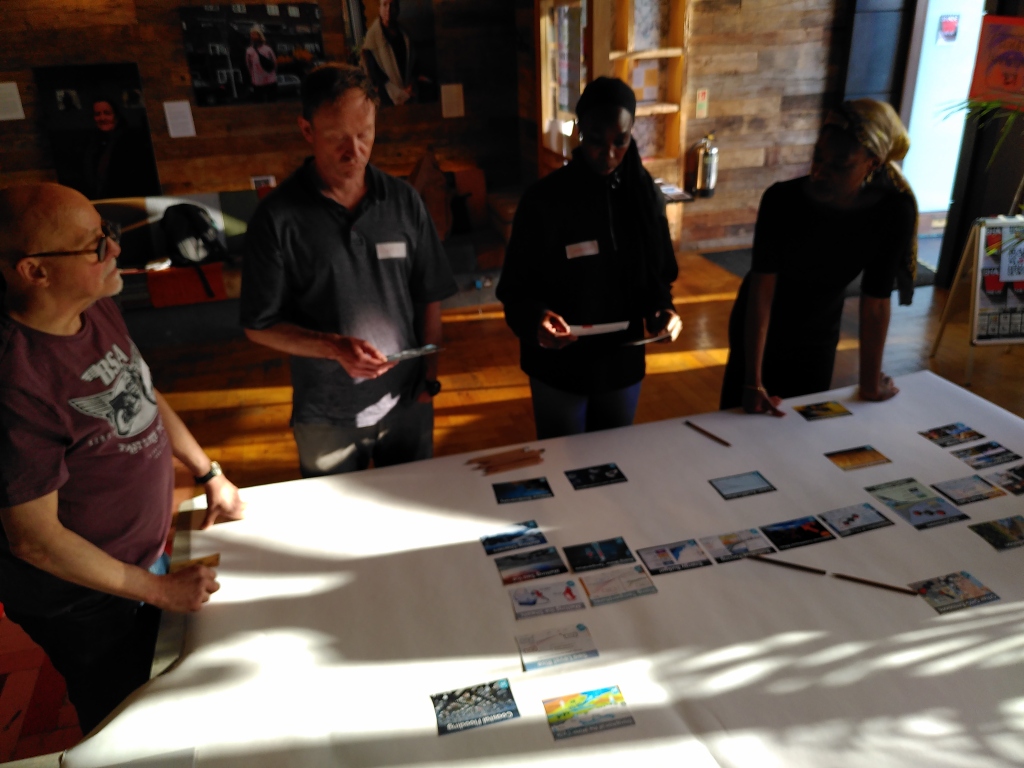
Here’s some useful info and organisations out on the web for developing your climate activism.
Climate Fresk – Of course, after participating in a climate fresk, you can learn to facilitate it and go on to host your own workshops and spread awareness of the climate crisis. The training is good and well supported with digital resources, training guides and a supportive community.
Take the Jump – An international environmental charity with very cheerful and friendly public engagement. Their website provides information about how we can all make simple changes to our daily lives and demonstrates how they work with different groups, from public events engaging people on the high street to supporting the development of governmental strategies.
Transition Network – If you don’t know of transition towns, please check out their site and read their story. An international organisation made up of completely autonomous groups doing what they identify needs to be done for their communities. They’ve been around for over 15 years and continue to sow the seeds for new groups and members across the planet. If you ever want to be reminded that there are definitely are others out there doing their stuff, check out their “See the global movement” map.
Climate Emergency Centres – A project that supports “The establishment of vacant properties as inspirational community hubs for the benefit of people and planet.” The Islington CEC is a great example. Although the project supports the establishment and networking of groups, the groups themselves are independent and work in whatever way they choose to. Often they will provide a physical space for groups like Transition and Take the Jump to meet.
Here is your ecological footprint calculator – similar but broader in scope than your carbon footprint, the ecological footprint calculator covers everything in the environment.
The EcoCounts wiki lists much more online stuff including more carbon calculators than you will ever need.
